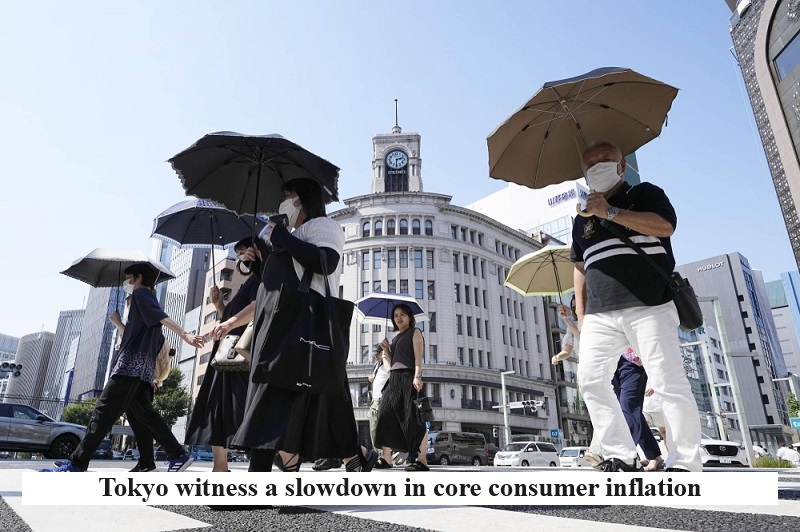
In a significant economic development, Tokyo, the capital of Japan, experienced a deceleration in core consumer inflation in November, signaling a shift in cost-push pressures within the nation’s economy. According to Reuters, the Tokyo core consumer price index (CPI), a pivotal metric influencing nationwide trends, increased by 2.3 percent year-on-year, slightly below the market’s anticipated 2.4 percent.
This slowdown, in comparison to a 2.7 percent rise in October, was influenced by moderating price increases for food and a decline in fuel costs. Government subsidies played a role in pushing down fuel expenses, contributing to the rate matching a low observed in July of the previous year.
The Bank of Japan (BOJ) will closely examine these figures during a two-day policy meeting concluding on December 19. The Tokyo CPI serves as a leading indicator, providing valuable insights into economic trends and aiding the central bank in shaping its monetary policy. With inflation consistently exceeding the BOJ’s 2 percent target for over a year, market participants anticipate potential adjustments to the bank’s massive stimulus, with some speculating on a shift as early as January.
Factors contributing to the slowdown include government subsidies reducing fuel costs and a moderation in the price increases of food items. The year-on-year increase of 2.3 percent aligns with a low point observed in July of the preceding year, indicating a potential shift in the economic landscape.
The BOJ, differing from global central banks, maintains an ultra-loose policy despite counterparts elsewhere raising interest rates to combat inflation. The central bank emphasizes the significance of rising wages and service costs as replacements for cost-push inflation.
The “core core” index, excluding both fresh food and fuel prices, rose by 3.6 percent in November from a year earlier, reinforcing the BOJ’s belief that increasing wages and service costs will contribute to sustainable inflation meeting the bank’s 2 percent target. Service prices, marking the fastest pace since 1994, rose by 3.0 percent in November from a year earlier, indicating potential positive shifts in labor costs.
Given inflation consistently surpassing the BOJ’s 2 percent target, market players anticipate potential adjustments to the bank’s stimulus measures. There is a growing expectation that the BOJ might phase out its massive stimulus in the coming year, with speculations ranging from a shift as early as January. This anticipation aligns with the global trend of central banks adjusting their policies to address inflationary pressures.

Post Your Comments